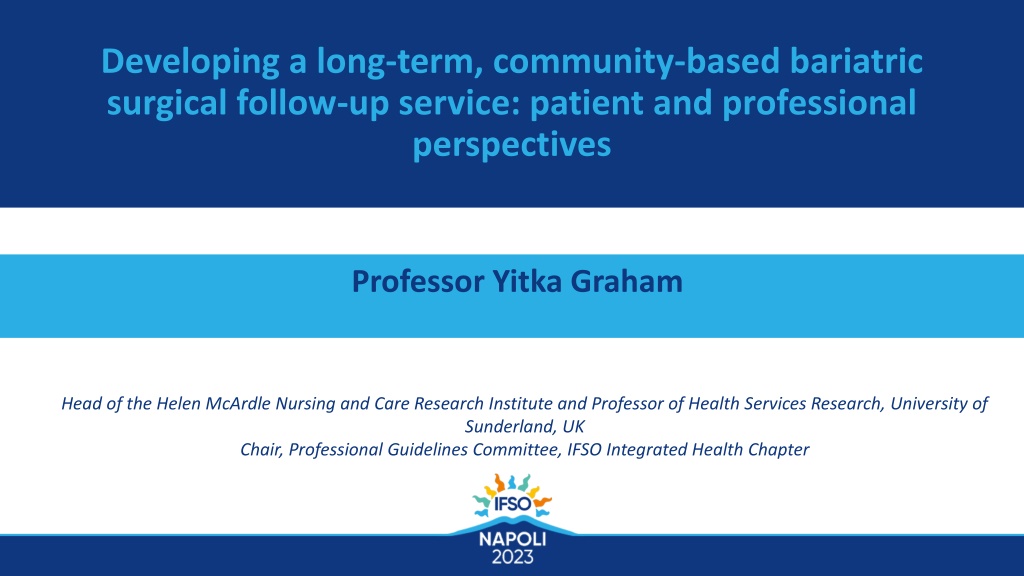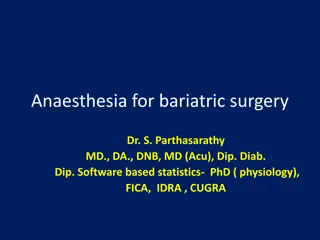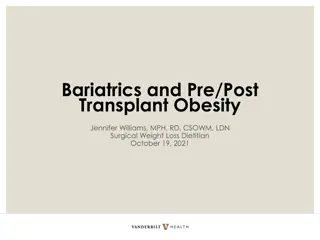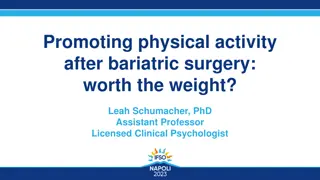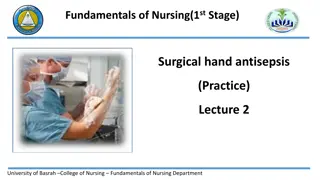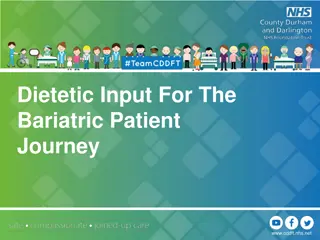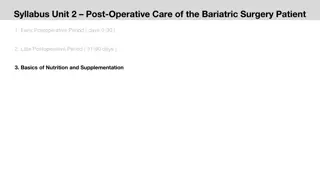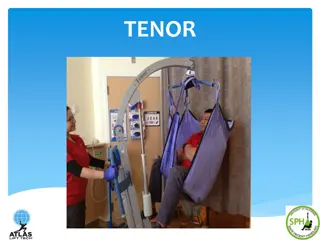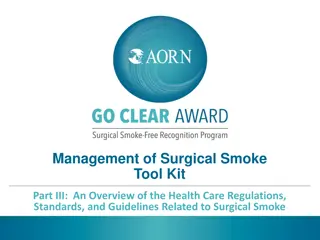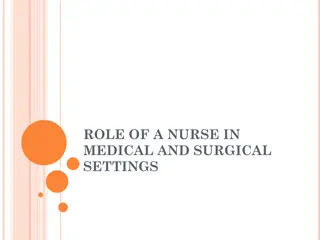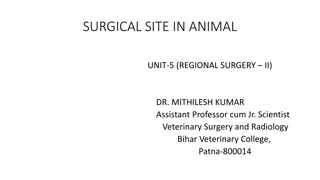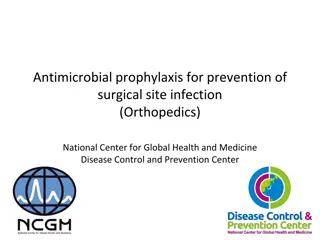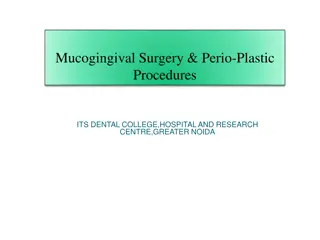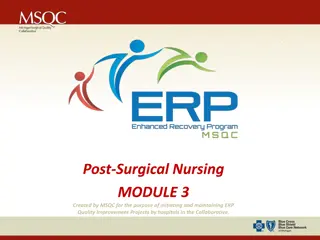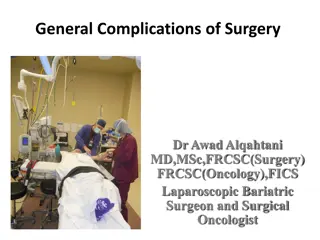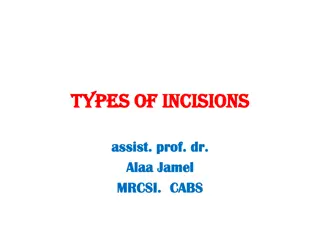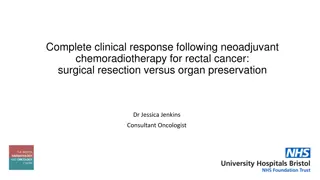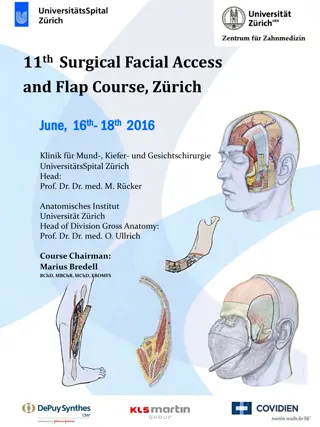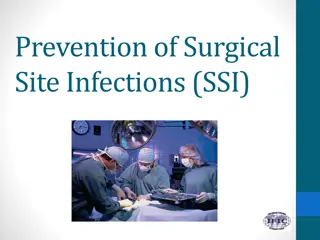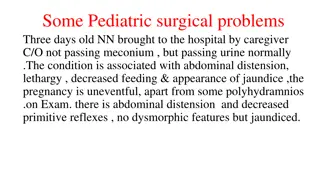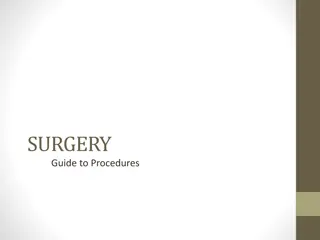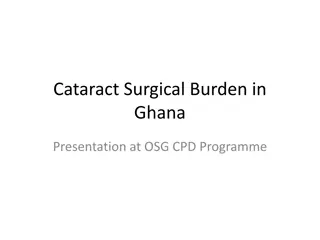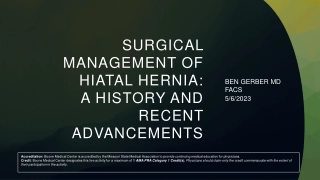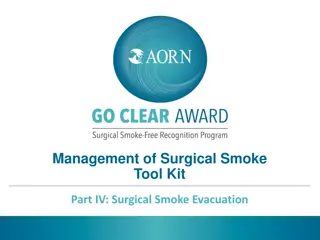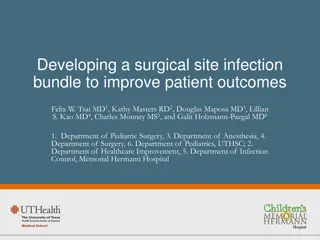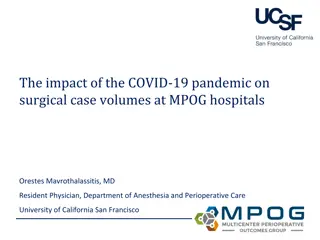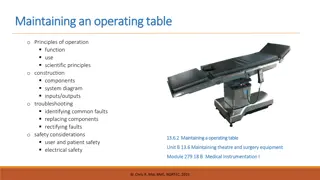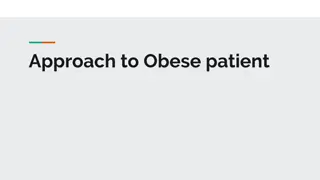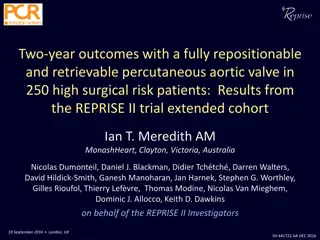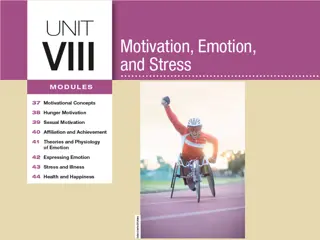Community-Based Bariatric Surgical Follow-Up Service: Perspectives and Needs
This research by Professor Yitka Graham explores the perspectives of patients and healthcare professionals on establishing a community-based bariatric surgical follow-up service. The study aims to understand the requirements for long-term care post-surgery, highlighting the lack of clarity in current guidelines and the limited research on community resources. Utilizing a social constructivist approach, the project delves into the interactions and experiences that shape patient and professional roles in bariatric care.
Download Presentation

Please find below an Image/Link to download the presentation.
The content on the website is provided AS IS for your information and personal use only. It may not be sold, licensed, or shared on other websites without obtaining consent from the author. Download presentation by click this link. If you encounter any issues during the download, it is possible that the publisher has removed the file from their server.
E N D
Presentation Transcript
Developing a long-term, community-based bariatric surgical follow-up service: patient and professional perspectives Professor Yitka Graham Head of the Helen McArdle Nursing and Care Research Institute and Professor of Health Services Research, University of Sunderland, UK Chair, Professional Guidelines Committee, IFSO Integrated Health Chapter
CONFLICT OF INTEREST DISCLOSURE CONFLICT OF INTEREST DISCLOSURE I have the following potential conflict(s) of interest to report: Receipt of grants/research supports: Celebrate Nutritional Supplements Molylncke Receipt of honoraria or consultation fees: Olympus Medical Participation in a company sponsored speaker s bureau: Intuitive Olympus Medical
Aim of presentation: To understand the needs of patients and professionals when developing a long-term community-based follow-up service or bariatric surgical patients
Background: In the UK, bariatric surgical patients are discharged from hospital into the community following two years of follow up NICE guidance for annual monitoring is ambiguous in terms of the role of General Practice Published recommendations are not well known in General Practice Paucity of research on what is needed/wanted and resources available in the community from the perspectives of General Practice and patients Little collaborative research with the community in bariatric surgery Co-design means both parties have ownership and can actively participate from design to dissemination National Institute for Health and Care Execellence (2014)Obesity: identification, assessment and management (CG189) London: NICE
Methods: Patient participants were recruited from bariatric surgical clinic lists at STSFT Time from surgery anywhere from 7 months 8 years Healthcare professionals were recruited through snowball and purposive sampling Data was collected through video and telephone interviews June October 2021 Data was transcribed verbatim and analysed using a thematic analytic framework A social constructivist theoretical lens was used asserts that reality is shaped through interactions with others and influenced by life experiences, social norms and values This perspective aids understanding of participants role and further illuminates findings Braun V, Clarke V. Using thematic analysis in psychology. Qualitative Research in Psychology. 2006;2(2):77-101 Conrad P, Barker KK. The Social Construction of Illness: Key Insights and Policy Implications. Journal of Health and Social Behavior. 2010;51(1 suppl):S67-S79.
Results: Patient participant demographics: 14 patient participants (11 female, 3 male ) Mean age = 51 years (30 70 years old) Mean time since surgery = 3.9 years (7 months 8 years) Ethnicity: all participants stated ethnicity as White Procedures: 13 Roux-en-Y bypass, 1 OAGB All were primary procedures
Results: Professional participant demographics 16 professionals (11 female, 5 male) General Practitioners = 5 4 General Practitioners 1 General Practitioner/Commissioner Practice Nurses = 4 Pharmacists = 7 Ethnicity: White = 9 Asian = 3,Black = 2
Emergent themes - patients Themes: patient participants Needing formal longer-term support Compliance Slipping back into old habits More psychological support needed Dealing with aspects of life after surgery No formal psychological support Dealing with weight gain Issues pertaining to the pandemic
Eprofessionals Eprofessionals Themes: professional participants Unsure of what is needed to support patients Lack of understanding about bariatric procedures No formal learning about bariatric surgery (CPD,curriculum) Little knowledge is self-taught Communication from bariatric unit is unclear and ambiguous Patients sometimes know more than the professional Medication issues
Discussion: Community Pharmacists and Practice Nurses were enthusiastic about: The topic of bariatric surgery Becoming more involved in long-term follow up and support of bariatric patients GPs had a variety of attitudes towards bariatric surgery Involvement of commissioners was crucial to recruitment and data collection Changes to national NHS commissioning has delayed nest steps but discussions still taking place
Reflections on the process Professionals were difficult to recruit Time pressures Study was co-designed with commissioners, General Practice and patients Patients were keen to participate Able to recruit 13 participants 2 >years post surgery Perceived indifference to bariatric surgery Far more straightforward in terms of recruitment Illuminated the longer-term experience of follow-up in the community Needed to ensure we had a good cross section of attitudes towards bariatric surgery Multiple perspectives aids understanding Participants sent study information to colleagues to try and address this
Conclusions Conclusions More research needed in collaboration with the community and patients General Practice environment challenging, but rewarding Relationships established that will continue after this study Pandemic has impacted patients journeys Further, more formal long-term support needed Psychological support needs embedding in follow-up Community healthcare professionals knowledge levels of bariatric surgery are low Opportunities for all healthcare professionals in the community to support patients Multidisciplinary approach in the community needed
Aims of presentation Ann Fox Kamal Mahawar Julie Parrott Fadi Khalil Catherine Hayes Follow me @ProfessorYitka Thank you to my collaborators:
